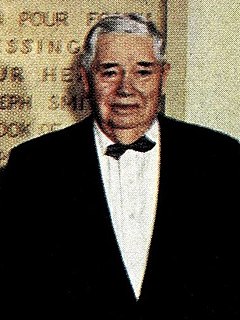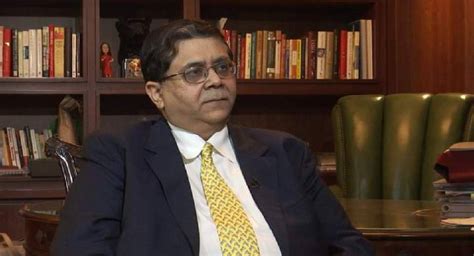A Quote by Margery Wilson
If Democracy should fail, it would be because we had been so lacking in self-discipline that our personal problems had taken all our substance and energies, leaving us nothing of value to contribute to the commonwealth.
Related Quotes
The battle for self-discipline may leave you a bit bruised and battered but always a better person. Self-discipline is a rigorous process at best; too many of us want it to be effortless and painless. Should temporary setbacks afflict us, a very significant part of our struggle for self-discipline is the determination and the courage to try again....Eternal life in the kingdom of our Father is your goal, and self-discipline will surely be required if you are to achieve it.
I am persuaded, from all the facts that have come to me, that it would have been possible, if we had functioned as the Lord intended us to function, if we had paid our tithes and our offerings as the Lord intended us to pay them, we might have gone on without one dollar from our federal government. And has it ever occurred to you what a mighty influence we should have exercised for good and for respect and for all of the virtues that we have been taught, and that God has commanded us to exercise and cultivate and practice, if we had just followed along what he has asked us to do?
We who are living in the west today are fortunate. Freedom has been bequeathed to us. We have not had to carve it out of nothing; we have not had to pay for it with our lives. But it would be a grave mistake to think that freedom requires nothing of us. Each of us has to earn freedom anew in order to possess it. We do so not just for our own sake, but for the sake of our children, so that they may build a better future that will sustain over the world the responsibilities and blessings of freedom.
... some of my people could have been left [in Africa] and are living there. And I can't understand them and they don't know me and I don't know them because all we had was taken away from us. And I became kind of angry; I felt the anger of why this had to happen to us. We were so stripped and robbed of our background, we wind up with nothing.
When we want to give expression to a dramatic situation in our lives, we tend to use metaphors of heaviness. We say that something has become a great burden to us. We either bear the burden or fail and go down with it, we struggle with it, win or lose. And Sabina - what had come over her? Nothing. She had left a man because she felt like leaving him. Had he persecuted her? Had he tried to take revenge on her? No. Her drama was a drama not of heaviness but of lightness. What fell to her lot was not the burden, but the unbearable lightness of being.
If God had perceived that our greatest need was economic, he would have sent an economist. If he had perceived that our greatest need was entertainment, he would have sent us a comedian or an artist. If God had perceived that our greatest need was political stability, he would have sent us a politician. If he had perceived that our greatest need was health, he would have sent us a doctor. But he perceived that our greatest need involved our sin, our alienation from him, our profound rebellion, our death; and he sent us a Savior.
It would have been very alarming - morally, and in other ways too - if an attack of that nature, the 11 September attacks, had not aroused in us and in our governments and societies the spirit of self-defence. If that had not been one of the responses it seems to me there would have been very grave cause for concern.
Experience was of no ethical value. It was merely the name men gave to their mistakes. Moralists had, as a rule, regarded it as a mode of warning, had claimed for it a certain ethical efficacy in the formation of character, had praised it as something that taught us what to follow and showed us what to avoid. But there was no motive power in experience. It was as little of an active cause as conscience itself. All that it really demonstrated was that our future would be the same as our past, and that the sin we had done once, and with loathing, we would do many times, and with joy.
For good or for bad, India has rejected a more totalitarian approach to how it will deal with its social problems. We would starve but we would not give up our democracy and our love for our freedoms and to deal with these problems in an atmosphere of democracy and the rule of law without necessarily going, sort of resorting to civil disobedience or any kind of violent revolution.
Demons frighten us because we set ourselves up to be frightened. We are overly attached to our reputations and possessions. When we love and desire what we should be rejecting, we are in conflict with our true selves. That's when the negative energies catch us and use our weapons against us. Instead of taking up what we have to defend ourselves, we put our swords in the hands of our enemies and make them attack us.




































